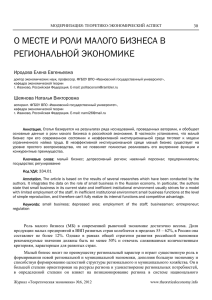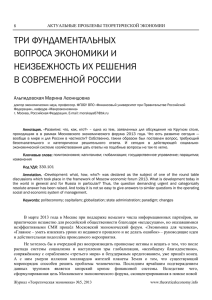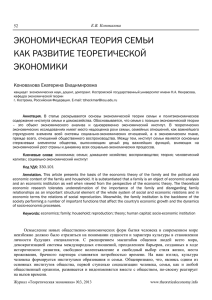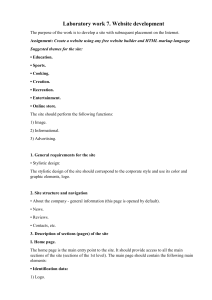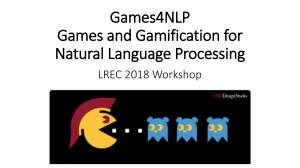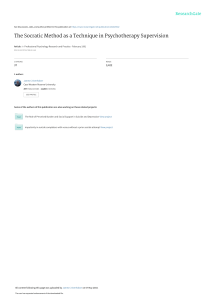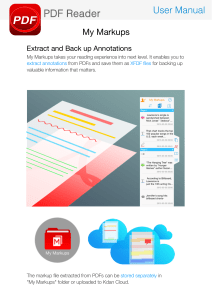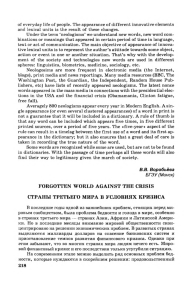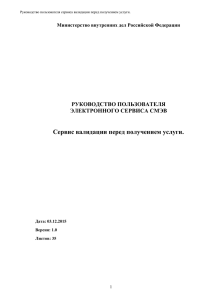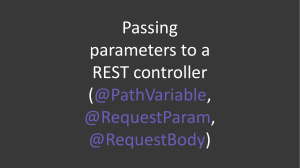Writing Annotation
реклама
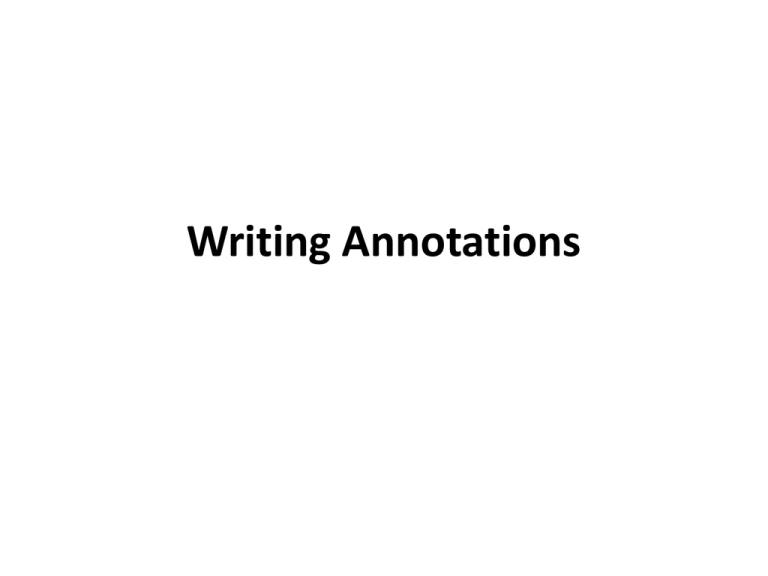
Writing Annotations What is annotation? An annotation is a brief description of a book, article, or other publication, including audiovisual materials. The purpose of annotation is to characterize the publication in such a way that the reader can decide whether or not to read the complete work. Why should You know how to write annotations? • Helps you write annotations for future publications • Helps you in conducting research • Helps you present complex information in a clear, concise manner • Helps you condense report information into a short format • Helps you read annotations more effectively Types of annotation Annotations vary according to their intended use and their content. • Descriptive/Informative annotations describe the content of a book or article and indicate distinctive features. • Critical annotations, in addition to describing the contents, evaluate the usefulness of a book or article for particular situations. Sample descriptive annotation London, Herbert. "Five Myths of the Television Age." Television Quarterly 10(1) Spring 1982:81-89. The author explains how television contradicts five ideas commonly believed by most people, using specific examples seen on television, such as the assassination of John Kennedy, to demonstrate his points. His examples contradict such truisms as "seeing is believing", "a picture is worth a thousand words", and "satisfaction is its own reward." London uses logical arguments to support his ideas, and doesn't refer to any previous works on the topic: the article is his personal opinion. Qualities of an effective annotation • Uses one well-developed paragraph, which is unified, coherent, concise, and able to stand alone (between100 to 200 words) • Adds no new information - merely summarizes • Contains stand-alone qualities - the annotation can be understood without reading the paper • Is understandable to a wide audience Other annotation samples Фролов И.Г. Глобальные проблемы, человек и судьбы человечества // Философия и политика в современном мире. - М.: Наука, 1989.-С. 44-60. Статья посвящена влиянию глобальных проблем на различные стороны жизни человека и на решение вопроса о будущем цивилизации. В статье рассматриваются пути и методы решения глобальных проблем мыслителями различных направлений. В. Наймушин. Рыночные реформы в России: можно ли разорвать замкнутый круг истории? Вопросы экономики 2004 №10 Статья посвящена вопросам реформирования бюджетных учреждений в сфере российской науки как необходимого условия построения рыночно ориентированной национальной инновационной системы. Анализируются количественные параметры сети бюджетных учреждений науки, направления и характер проводимых государством изменений, предлагаются сценарии ее реформирования. Рассматриваются возможные последствия отложенных реформ и возникающие при этом риски. Market orientation for the Russian companies: setting problems, research and perspectives Keywords: innovation, marketing, market orientation, strategic marketing The article explains the problem questions from the field of market orientation of Russian companies: the distinctions in the terminology, the limitation of the existing methodology and the practical use by the managers. The authors give results of research among 216 companies of Moscow region, develop methodology of how to study the market orientation within internal environment of the company and describe the perspective of the follow up research. How do I write an annotation? • Read the text carefully and answer the question: ‘What is the text about?’ • Formulate the main topic and subtopics • Break the text into logical parts, give them titles • Start annotation with bibliography (the author, title, publisher,etc) • Start sentences with the typical phrases (cliché): ‘the article discribes…’, ‘the paper shows…’, ‘the publication deals with…’ etc. • Use passive constructions Clichés for annotation writing The article introduces/presents/gives/describes… The article reveals … The article contains… The article points out that … The publication deals with… The study/paper presents/discusses… The paper shows/presents/regards/examines… The author considers/outlines/concludes/ points out… The author concentrates on… The author views/reviews/ presents… The author analyses how…/ examines why…/ Clichés for annotation writing The author mentions/ stresses… The author believes… The author underlines that…/ outlines/ concludes… According to the author/ in the author’s opinion The author calls attention to the fact that…. The author analyses/ compares/determines/states The author summarizes the results of… Data shows/covers…
